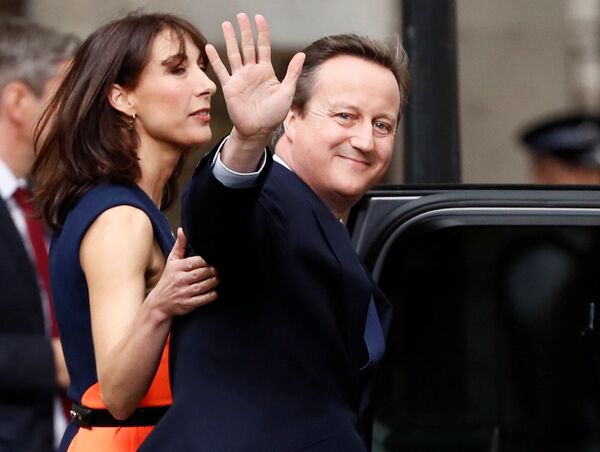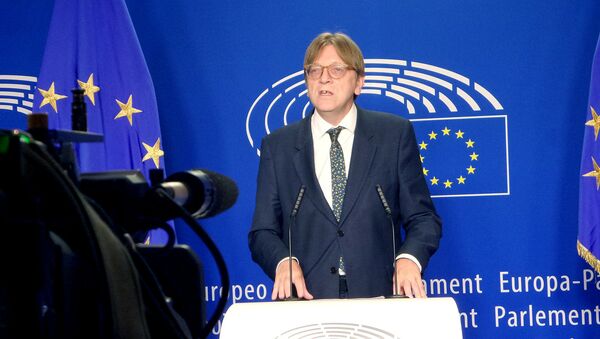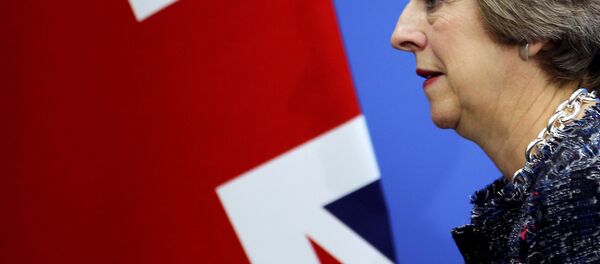If UK wants access to #SingleMarket, it must also accept the free movement of citizens. Our four freedoms are inseparable.
— Guy Verhofstadt (@GuyVerhofstadt) September 13, 2016
Verhofstadt said that the UK should invoke Article 50 of the Treaty of Lisbon as soon as possible and that the European Parliament should be in at the start of the negotiations, as it would ultimately have to ratify whatever the final exit agreement was.
"The parliament will have to give consent to the agreement, as stated in Article 50 of the treaty and that is why it is wise that we are involved from the beginning of the negotiations. I believe that the UK should trigger Article 50 as soon as possible, so that we can finalize these negotiations by 2019, because I cannot imagine that we start the next legislative cycle without agreement," he told reporters September 13.
#Brexit should be delivered before 2019, when EU politics enters into new cycle & the @Europarl_EN starts new mandate.
— Guy Verhofstadt (@GuyVerhofstadt) September 13, 2016
However, although he declined to give a list of all his red lines — the areas where parliament would not back down on — he stressed that the freedom of movement of EU workers was a central, unmovable issue. The four freedoms of the EU are the movement of people, goods, services and capital.
"The position of the parliament is very clear: if the UK wants to remain part of the single market, it will also have to accept the free movement of our citizens, because — in the opinion of the parliament — the four freedoms of the union are inseparable," he said.
Lack of Trust and Confidence
Verhofstadt admitted that the EU was facing major problems, with immigration, border controls, terrorism and difficulties in the Eurozone, providing ammunition for growing anti-EU sentiment.
"It will not be a surprise that he union is not in a good state. Many people have fallen into the trap of nationalists and populists, juts because they don't see a Europe that is capable of facing the challenges of today. My intervention [at the State of the Union debate in parliament, September 14] will be to try and explain what reforms we finally need to regain the trust and the confidence of these voters."
Despite the hardline approach on freedom of movement of EU workers, Verhofstadt fell back on his customary sense of humor when asked by a UK journalist if he had any advice for other European politicians "in mid-careers, who find themselves former prime ministers of their countries" — in a clear reference to David Cameron, who resigned as UK prime minister having failed to win the referendum campaign to remain in the EU and who announced, September 12, that he would quit as a member of parliament with immediate effect.

Verhofstadt replied, with a wry smile:
"They could do what I did and go into European politics. They have some experience, so I think it's a good thing that former national leaders enter European politics."



